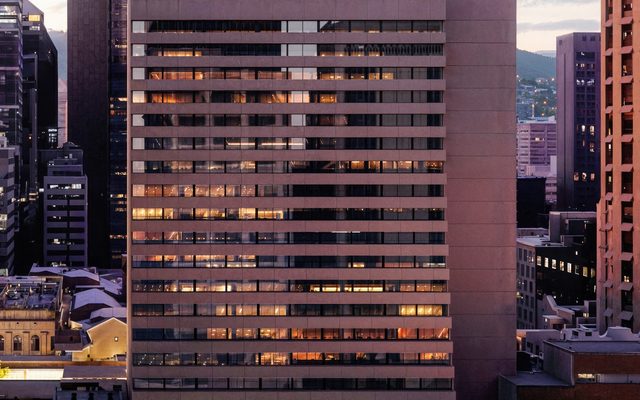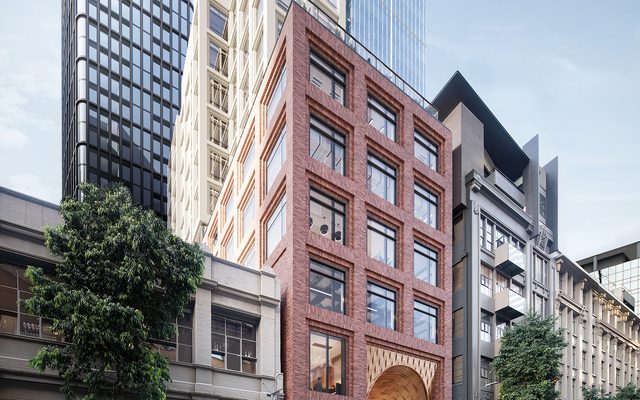This article is from the Australian Property Journal archive
GPT Group has kicked off the leasing campaign for its $238 million Queen & Collins project in the Melbourne CBD, transforming three buildings on a city corner to a commercial complex with 35,000 sqm of A grade office space.
The trio includes the 34 level former world headquarters of ANZ, and heritage buildings at 90 Queen St, known as the Safe Deposit Building, and at 380 Collins St, the former Melbourne Stock Exchange Building.
Currently under construction by Probuild, Queen & Collins is owned by the GPT Wholesale Office Fund, which currently has 17 office assets valued at $8.6 billion under management.
Fund manager, GPT Wholesale Office Fund, Martin Ritchie said Queen & Collins would capitalise on emerging demand among rightsizing businesses for smaller, bespoke floorplates and thoughtfully designed, premium amenity that responds to changing workplace requirements.
The redeveloped tower will offer 1,300 sqm floorplates on podium levels and 900 sqm floorplates on mid-rise and high-rise levels. It will also feature a collection of spaces known as The Mezzanine, comprising more than 1,000 sqm of bookable facilities for meetings and special events.
The Mezzanine has been designed to be leased short-term for “spill over” projects or daily for larger meetings such as product launches, staff town halls or board meetings.
“Queen & Collins will focus on providing flexibility and personalised service to help our tenants navigate what the future looks like for their business. It will be a considered workplace responsive to the demands and opportunities of the new normal,” Ritchie said.
The three buildings will be integrated into one precinct featuring open-air lanes, courtyards and squares of varying heights, publicly all accessible as part of a new retail and dining precinct. Architects Kerstin Thompson Architects and BVN Architecture designed the project.
The leasing campaign comes at a fraught time for city office markets around the world. A recent estimate from JLL suggests some 123,000 sqm of sublease space is on the market in the CBD, 44% of which is directly due to the impacts of COVID-19.
Net absorption rates across Australia’s CBD office markets collapsed in the June quarter, as the pandemic upended conventional working arrangements and forced businesses to rethink their rent commitments. Melbourne CBD recorded 42,300 sqm of negative net absorption – prior to its current lockdown that has all but emptied he capital – while the completion of a new developments and associated backfill space pushed the vacancy rate up.
Gross effective rents across the major eastern seaboard CBD office markets fell.




